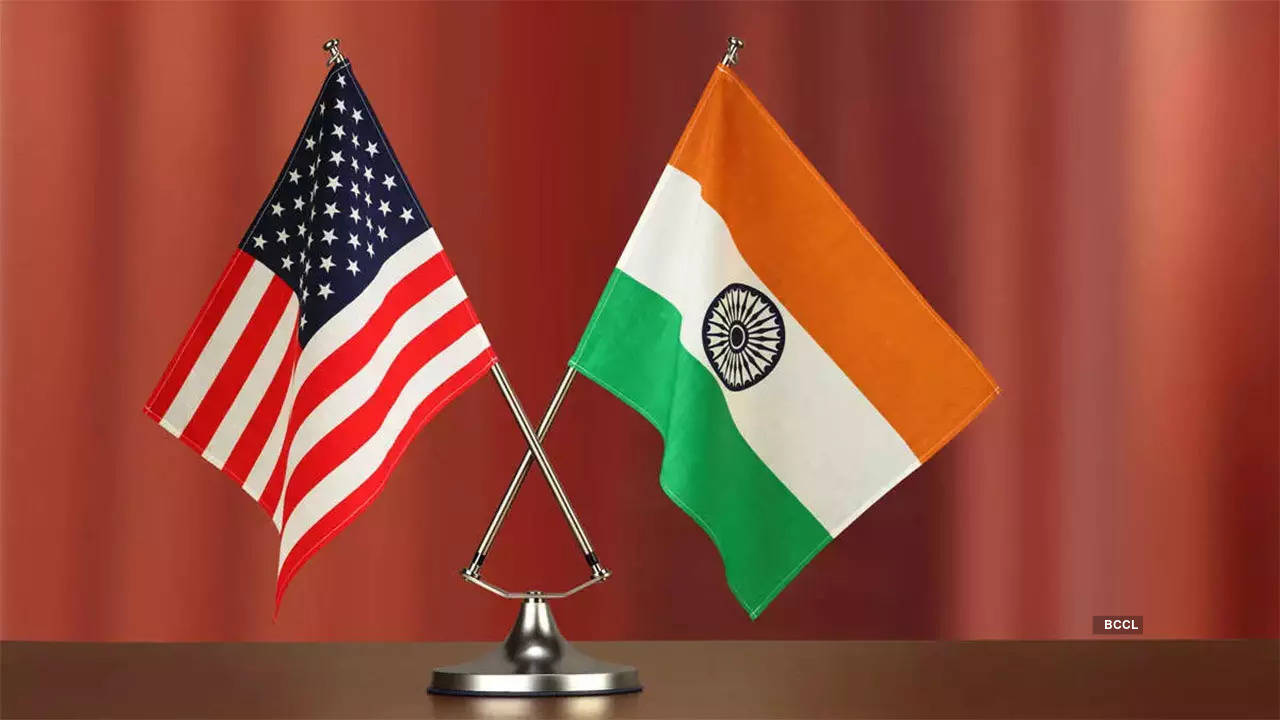[ad_1]
NEW DELHI: In the 5th 2+2 ministerial meeting on Friday, India and the US will look to build upon the gains from Prime Minister Narendra Modi’s landmark state visit earlier this year, with a focus on defence technology transfer and coproduction, strategic technology collaborations, nuclear cooperation, and people-to-people ties. China and the Indo-Pacific, including Quad cooperation, and Israel-Hamas and Ukraine-Russia wars are among the global and regional issues the two sides will look to address.
India’s diplomatic spat with Canada is also likely to figure in foreign minister S Jaishankar’s bilateral meeting with his counterpart Antony Blinken on the margins of the 2+2 talks. Secretary of defense Lloyd Austin will also have a bilateral meeting with defence minister Rajnath Singh, said the government in its announcement on Wednesday, as the two sides look to reaffirm the India-US Comprehensive Global Strategic Partnership.
“The 2+2 will enable a high-level review of progress being made in cross-cutting aspects of defence and security cooperation, technology value chain collaborations and people-to-people ties,” said the statement, adding that the ministers will review progress in the futuristic roadmap for the India-US partnership as envisioned by Modi and Biden during their meetings in June and September.
After their summit in June, Biden had visited India in September for the G20 and met Modi on the sidelines. A major takeaway from Modi’s state visit was the MoU signed by GE and HAL for manufacture of fighter jet engines in India. This followed the announcement last year by Biden and Modi of the initiative on Critical and Emerging Technology (iCET) under which India and the US have worked to a finalise a defence industrial roadmap for joint development and production, munition related technologies, and other systems.
The 2+2 will discuss progress under the initiative before it comes up for annual review by the NSAs in January. The two sides are also looking to finalise a pact for development of next generation small modular reactor technologies. Delhi is eager that the proposed project to jointly produce the GE-F414 jet engines in India, with 80% transfer of technology, kicks off as soon as possible to herald a new era in bilateral defence-industrial collaboration. The aim is to ensure that the first such engine, in the 98 kilonewton thrust class to power the indigenous Tejas Mark-2 fighter should be ready to roll out in three years or so.
India’s diplomatic spat with Canada is also likely to figure in foreign minister S Jaishankar’s bilateral meeting with his counterpart Antony Blinken on the margins of the 2+2 talks. Secretary of defense Lloyd Austin will also have a bilateral meeting with defence minister Rajnath Singh, said the government in its announcement on Wednesday, as the two sides look to reaffirm the India-US Comprehensive Global Strategic Partnership.
“The 2+2 will enable a high-level review of progress being made in cross-cutting aspects of defence and security cooperation, technology value chain collaborations and people-to-people ties,” said the statement, adding that the ministers will review progress in the futuristic roadmap for the India-US partnership as envisioned by Modi and Biden during their meetings in June and September.
After their summit in June, Biden had visited India in September for the G20 and met Modi on the sidelines. A major takeaway from Modi’s state visit was the MoU signed by GE and HAL for manufacture of fighter jet engines in India. This followed the announcement last year by Biden and Modi of the initiative on Critical and Emerging Technology (iCET) under which India and the US have worked to a finalise a defence industrial roadmap for joint development and production, munition related technologies, and other systems.
The 2+2 will discuss progress under the initiative before it comes up for annual review by the NSAs in January. The two sides are also looking to finalise a pact for development of next generation small modular reactor technologies. Delhi is eager that the proposed project to jointly produce the GE-F414 jet engines in India, with 80% transfer of technology, kicks off as soon as possible to herald a new era in bilateral defence-industrial collaboration. The aim is to ensure that the first such engine, in the 98 kilonewton thrust class to power the indigenous Tejas Mark-2 fighter should be ready to roll out in three years or so.
[ad_2]
Source link


